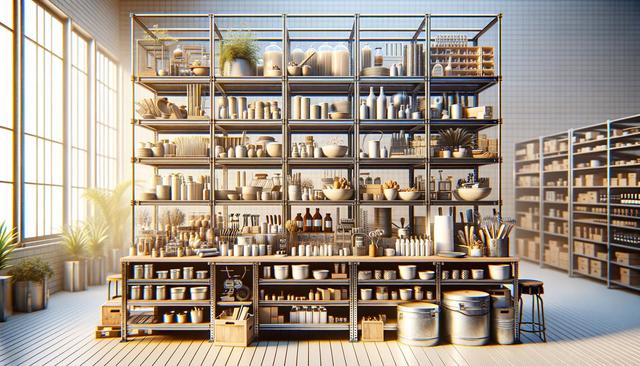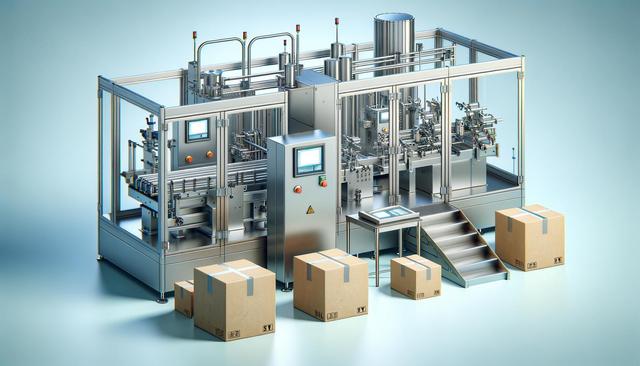
Maximizing Space and Efficiency with Industrial Shelving
Understanding Industrial Shelving Systems
Industrial shelving is a cornerstone of effective storage solutions in warehouses, factories, workshops, and retail backrooms. These systems are designed to support heavy loads, improve space utilization, and ensure easy access to stored materials. Unlike standard shelving units, industrial versions are typically constructed from robust materials such as steel or high-grade aluminum, which provide the strength and durability necessary for demanding environments.
There are various types of industrial shelving systems available, each with unique features tailored to specific storage needs. Some common types include:
- Rivet shelving – offers boltless assembly and high weight capacity
- Steel shelving – known for its rigidity and versatility
- Wire shelving – ideal for improved ventilation and visibility
- Mobile shelving – maximizes storage by eliminating fixed aisles
Selecting the right type of shelving depends on multiple factors, including the weight of items, available floor space, and accessibility requirements.
Benefits of Using Industrial Shelving
One of the primary advantages of industrial shelving is its ability to significantly increase storage capacity within a given footprint. By utilizing vertical space, businesses can store more items without expanding their warehouse or facility size. This approach not only saves on real estate costs but also enhances workflow and inventory management.
Additional benefits of using industrial shelving include:
- Improved organization – designated storage locations reduce time spent searching for items
- Enhanced safety – secure storage prevents accidents caused by clutter or improperly stored materials
- Scalability – modular shelving systems can be adjusted or expanded as storage needs grow
Moreover, well-organized shelving systems contribute to better workplace ergonomics, reducing strain on workers and increasing productivity.
Factors to Consider When Choosing Shelving
When selecting industrial shelving, it’s important to evaluate the specific requirements of your storage environment. Key considerations include load capacity, shelf dimensions, material type, and environmental factors such as humidity or temperature. For instance, galvanized or powder-coated finishes may be necessary in damp conditions to prevent corrosion.
Other practical considerations include:
- Accessibility – open vs. closed shelving depending on how frequently items are retrieved
- Adjustability – flexibility to change shelf heights as storage needs evolve
- Compliance – ensuring the system meets local safety and building codes
Careful planning and consultation with storage professionals can help determine the most effective configuration for your space and operations.
Maintenance and Longevity
Maintaining industrial shelving is essential to ensure safety and extend the lifespan of the equipment. Regular inspections should be conducted to identify signs of wear, rust, or structural damage. Shelving should also be cleaned periodically to remove dust and debris, particularly in environments where cleanliness is critical.
To maintain shelving systems effectively:
- Check for loose bolts, warped shelves, or bent supports
- Avoid overloading shelves beyond their rated capacity
- Label shelves clearly to promote proper usage and prevent misuse
Implementing a maintenance checklist and training staff on proper handling and loading techniques can greatly reduce the risk of accidents and costly repairs.
Applications Across Industries
Industrial shelving is used in a wide range of sectors beyond traditional warehousing. In manufacturing, shelving systems support raw materials and tools; in retail, they organize excess inventory; and in healthcare, they store medical supplies in an orderly and sterile manner.
Some common applications include:
- Automotive – for storing parts, tires, and tools
- Pharmaceutical – for organizing bottles, cartons, and sensitive materials
- Food service – for dry storage of ingredients and kitchen equipment
- Libraries and archives – for preserving documents and media
The versatility and adaptability of industrial shelving make it an essential solution across multiple industries, allowing businesses to optimize their storage strategies and improve operational efficiency.


